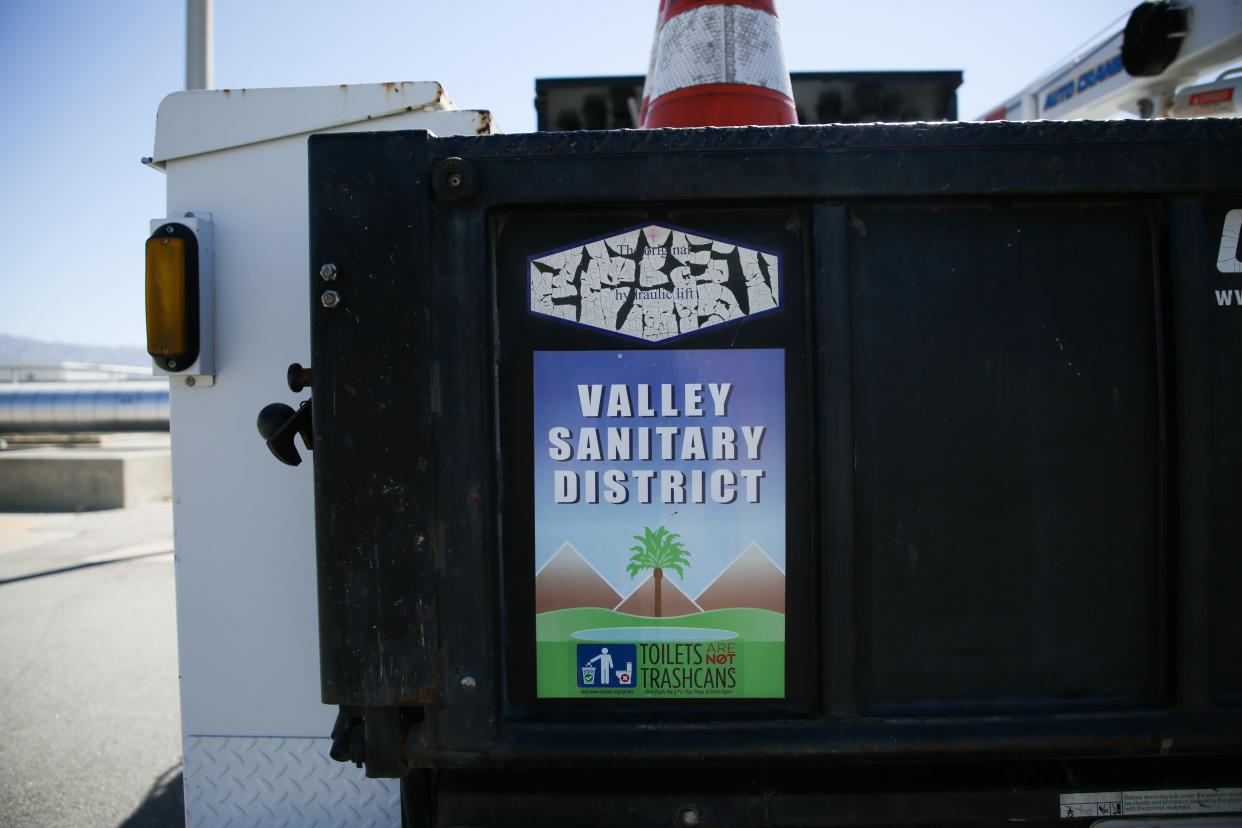Local wastewater treatment plants start monitoring for monkeypox

Two wastewater treatment plants in the Coachella Valley have announced they will be testing wastewater samples for the presence of monkeypox in order to better track the fast-spreading virus.
The Valley Sanitary District in Indio is testing for monkeypox as part of an expanded public health surveillance program.
Solid wastewater samples will be used to test for monkeypox three times a week, explained Beverli Marshall, general manager of the Valley Sanitary District. The program, called WastewaterSCAN and launched by researchers at Stanford University and Emory University, will also monitor for COVID-19, flu and other infectious diseases.
The first report is expected to be released sometime next week.
The City of Palm Springs announced Tuesday it has expanded its partnership with GT Molecular to begin tracking the virus. The first results show there were 20,246 virus copies per liter detected on Aug. 8, and 4,118 virus copies per liter detected on Aug. 15.
Results will be posted online every Monday on the city’s monkeypox page located at palmspringsca.gov/mpxinfo. The plant also tests for COVID-19 concentration in wastewater samples.
Monkeypox is a disease caused by the monkeypox virus. People usually become infected through close contact with skin lesions or bodily fluids of infected animals or humans (alive or dead), including droplets, or clothing and linens from an infected person. The virus can also be spread through sexual contact, but it is not classified as a sexually transmitted infection.
The new testing programs come at a time when the cities of Palm Springs, Cathedral City, Desert Hot Springs and Palm Desert make up more than 70% of all reported monkeypox cases in Riverside County. Over the next few months, several large-scale events will take place in the Palm Springs area, and some are worried about the potential for even more virus spread.
Health officials say the Palm Springs area is at high risk given its large number of LGBTQ+ residents and tourists. The virus can infect anyone, but during the current U.S. outbreak, it has disproportionately affected men who have sex with men, a group that includes people who identify as gay, bisexual, transgender and nonbinary.
"We have a huge tourism population, so I am anticipating that should we still be doing it during November and December, we can see if there are people coming into the Coachella Valley and bringing it with them," Marshall said. "If we're seeing peaks and valleys during those activities, that's not just from the people who live here."
As of Tuesday, Indio had less than five confirmed and probable cases of monkeypox, according to the county's virus dashboard. 2020 Census data shows the city has a population of nearly 90,000 residents.
The Valley Sanitary District, which serves around 85,000 people, has also been monitoring wastewater for COVID-19 concentration since 2020 through the National Wastewater Surveillance System public health program. Staff members test liquid samples twice a week, which Marshall said will continue through at least the end of the year.
Funding for the district's disease surveillance programs comes through grants.
Wastewater has been a beneficial tool to track infectious diseases throughout history. It was used for polio in the 1940s, and wastewater surveillance in New York has recently detected the virus again. Additionally, throughout the pandemic, wastewater reports showed spikes in COVID-19 cases often sooner than Riverside County Public Health's testing results.
As monkeypox vaccines and treatments have been allocated in scarce amounts in Riverside County and the Coachella Valley, Marshall hopes this new testing program could be a tool to bring in more resources to the valley.
"I'm anticipating that we will see trends as people who are snowbirds and tourists come to the valley, which hopefully is something that [will make] the public health department go, 'Hmm,'" she said. "They look at Riverside County as a whole, but you also have to look at the Coachella Valley as its own environmental microcosm."
The scientists leading WastewaterSCAN began testing for monkeypox viral DNA at 11 Northern California locations on June 19 and were the first to report detections of the monkeypox virus in wastewater in the United States.
Ema Sasic covers entertainment and health in the Coachella Valley. Reach her at ema.sasic@desertsun.com or on Twitter @ema_sasic.
This article originally appeared on Palm Springs Desert Sun: Valley Sanitary District to start monitoring wastewater for monkeypox

